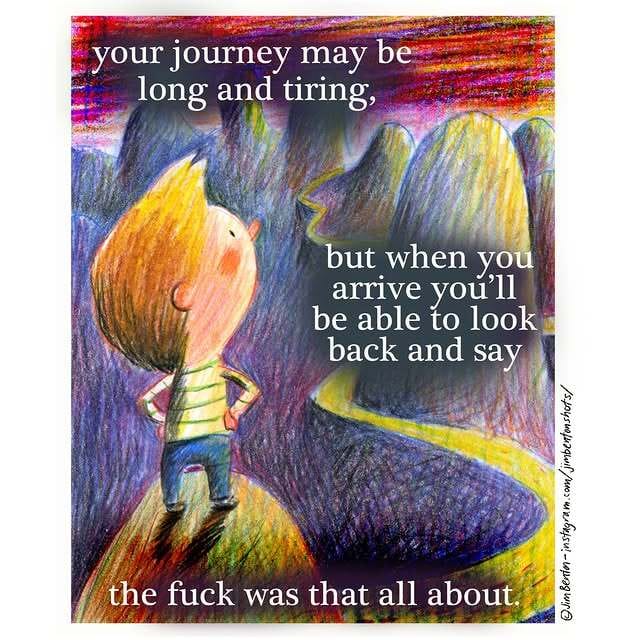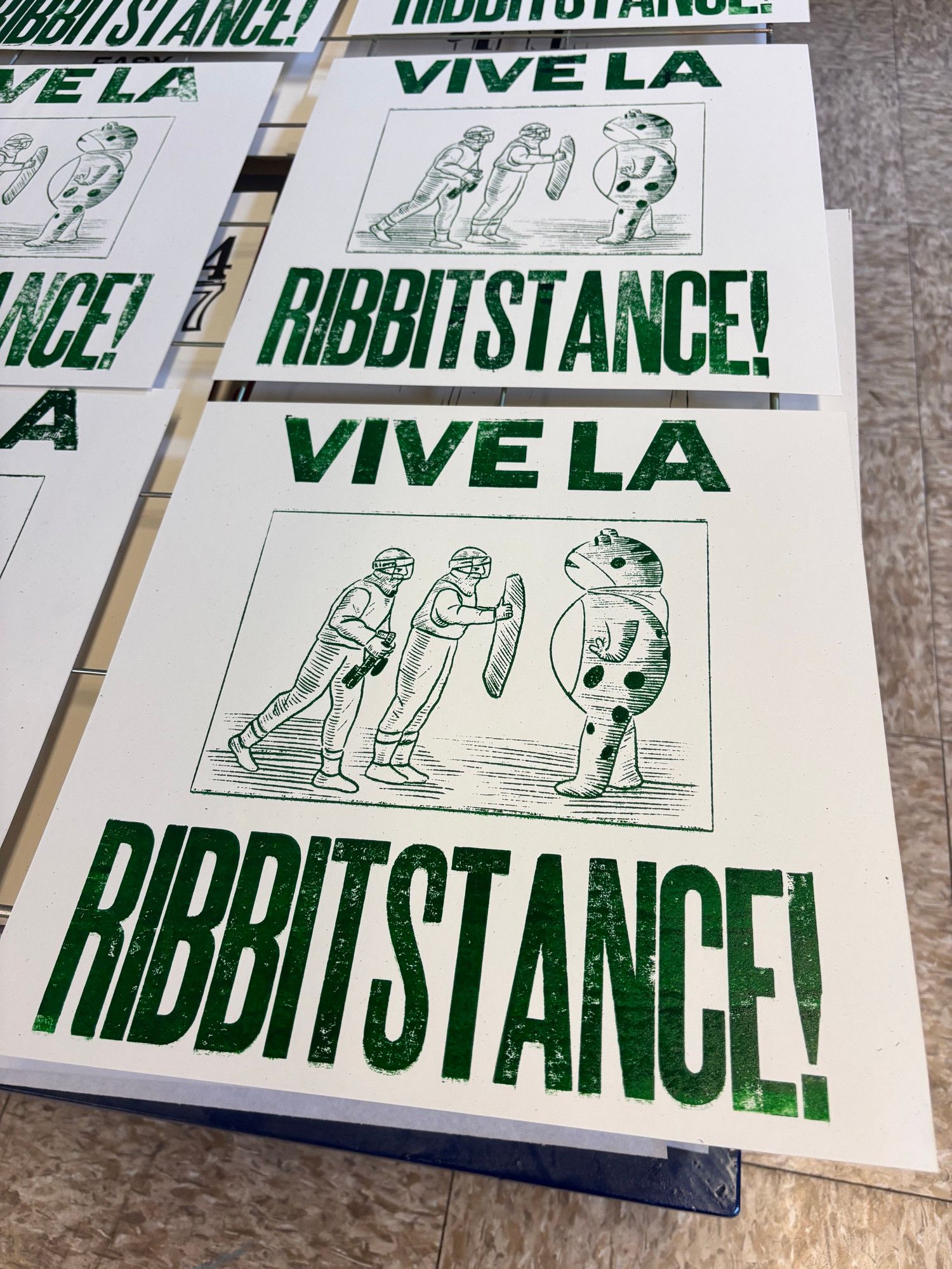- Creativity for Good
- Posts
- 💜(10/10) the creativity for good friday five
💜(10/10) the creativity for good friday five
this week’s highlights on creating for good
Hello, dear ones!
I don’t know about all of you, but I have had Yet Another Week, and I am getting very tired of it!
That said: The horrors persist, but so do we, etc etc etc. In the spirit of persistent fuckery, I decided to free myself from the obligations of Being A Professional Writer and do something I haven’t done in over a year: Dedicated myself to writing some absolute nonsense. I’ve spent a truly silly amount of time this week writing short, smutty little fanfic snippets for Kinktober and sharing them with a tiny closed community on Discord. I get the dopamine hit of delighted reaction emojis and equally delighted comments, my friends get to read some mildly deranged smut, and honestly, everyone goes home happy.
(Also possibly horny? You’re welcome, Discord buddies!)
Giving myself permission to lean into pleasure-writing — pleasure as in pleasure, sure, but also pleasure as in the simple joy of doing something just for fun — has been a respite in a week of constant stress and exhaustion, at both the personal and political levels. This is the same lens through which I’ve been looking at the protests in Portland: Understanding that when everything is Too Much, sometimes whimsy is what we’ve got left. And the best part is, it’s absolutely working.
This week, I hope you get some time to bring a bit of whimsy into your life — into what you create, how you interact with the world, and what you do when things get rough. I think it’s clear that we could all use it.
your friday five!
this week’s highlights on creating for good
An Interview With the Portland Chicken (Rachel Saslow for Wilamette Week)
A delightful conversation about the power of fearlessness, whimsy, and saying fuck you to the fascists, straight from the chicken’s beak.
“What they rely on is fear,” Jack Dickinson (aka the Portland Chicken) told Saslow. “So by coming out in an absurdist manner, it speaks to them, to some extent, that we’re actually not that afraid.”Boston’s Food Forests Take Root as a Climate Equity Strategy (Ryan Krugman for Inside Climate News)
I will be the first to admit that I do not have a green thumb. My house and yard are full of plants and flowers, but I am Expressly Forbidden From Touching Them, due to the fact that I am,,,,,bad at it.
That said, one of my very favorite things my partner, who is the green-thumbed member of the family, has done with our yard and garden is essentially make it possible for me to achieve my dream of going outside in the summer and being able to have snacktime. I’ve always wanted to be able to wander around from bush to bush and making myself a fruit and veggie salad of deliciousness, and now (at least for another few weeks) I can!
But to me, the most important thing has been making it clear to our neighbors that these raspberries and blueberries and cherries and apples and tomatoes and zucchini (oh my god, especially the zucchini, send help) aren’t just for us — they’re for anyone walking by. That’s why I’m so obsessed with what Boston has done in transforming empty lots into edible forests, open to anyone and making a difference both in terms of the availability of healthy produce and the city’s climate footprint. More of this everywhere, please!A Letter from an Organizer on How to Fight While Feeling Broken (Aaron Goggans, excerpted from Read This When Things Fall Apart: Letters to Activists in Crisis and featured on Mental Hellth)
This book, edited by veteran organizer and co-author of Let This Radicalize You Kelly Hayes, has been on my watch list since it was announced, and this excerpted letter makes it clear just why it’s going to be such an important resource in this moment. What stood out to me in particular was this:
“To organize well is to live on an alternative timeline in which we get free, and to start acting as if you already are.”
(emphasis added)
This concept falls along the same lines as Timothy Snyder’s do not obey in advance. When we fall into the trap of constriction, denial, and closing-off, we do the work of the oppressors for them. Instead, the work is to build something new: systems and structures of healing, for individuals and communities and societies alike.Why fandom organizing is a powerful strategy for movement building (Natalie Green, Elana Levin, and Anthony Vidal Torres for Waging Nonviolence)
I fucking love fandom. I am shameless about this. My very first Creativity Q&A interview was all about a fandom coming together to fundraise for Palestine, and in the years since (and, obviously, for decades prior) fandoms have continued to use their connections, relationships, and platforms to mobilize around the issues they care about. This piece on the Andor fandom, the political ideology of Star Wars, and the Disney/ABC boycott in the wake of the Trump administration’s attempt to cancel Jimmy Kimmel is a brilliant analysis of why these movements work — and what we can learn from them.The Twelve Days of Bigolas Dickolas Wolfwood (Amal El-Mohtar on her website)
An oldie, but such a delightful goodie that it had to round out this week’s letter on whimsy and humor and impact. A viral tweet from a Trigun fan account took This is How You Lose the Time War, the speculative novella El-Mohtar co-wrote with Max Gladstone, from a genre secret to a multi-platform bestseller. It’s a true testament to the power of one single, silly voice to make a transformative difference — not just bringing awareness and attention, but introducing people to new concepts, new ideas, and new forms of connection.
read this. DO NOT look up anything about it. just read it. it's only like 200 pages u can download it on audible it's only like four hours. do it right now i'm very extremely serious.
— bigolas dickolas woIfwood (@maskofbun)
5:39 AM • May 7, 2023
May we all get a Bigolas Dickolas to catapult our books into stardom. And may we all make time for whimsy.
See you next week!
💜Shelly



